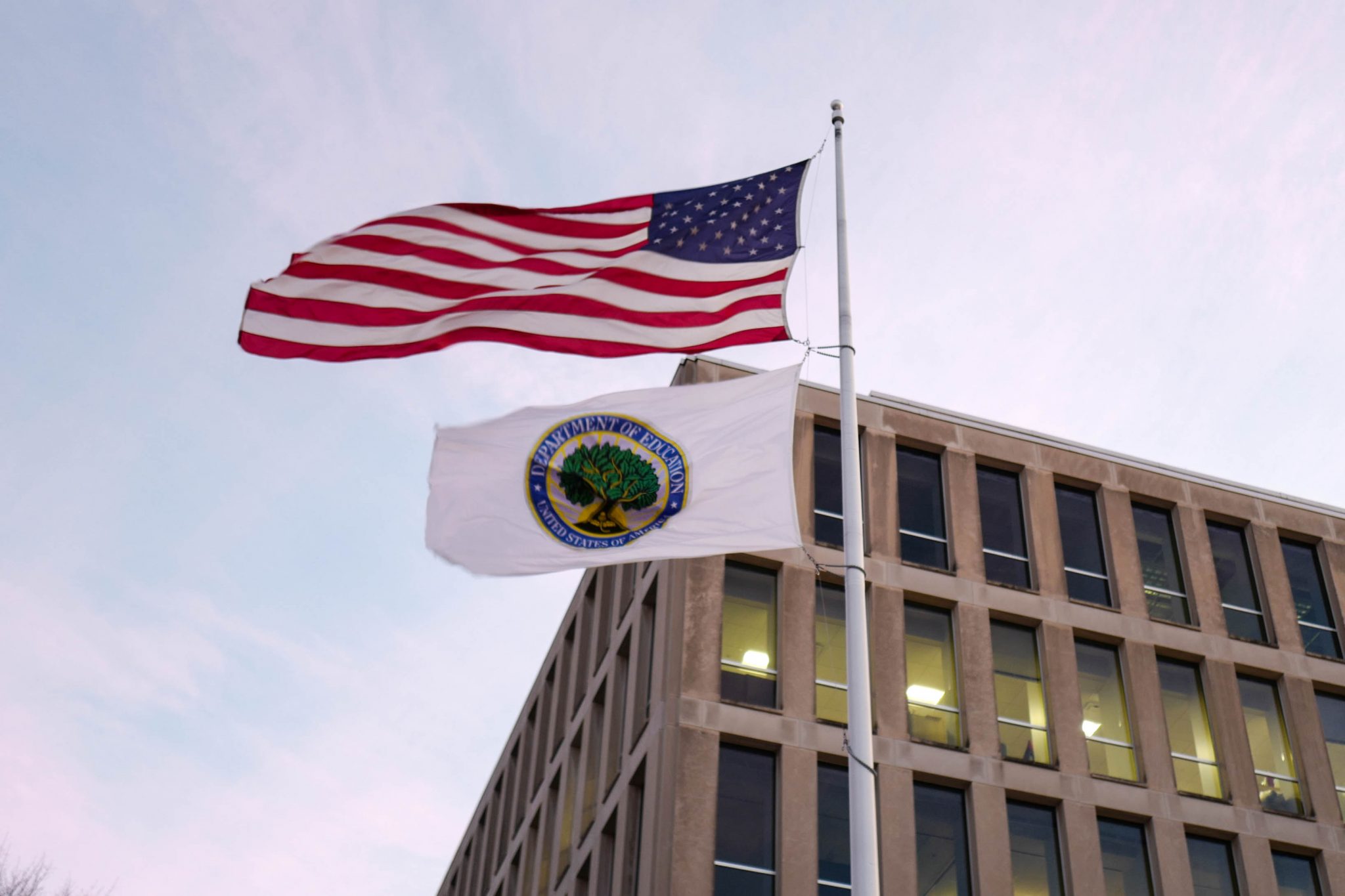University of Maryland graduate student Cecelia Dworak said she noticed anxiety among the students she teaches in Prince George’s County.
Dworak, an intern teaching 11th grade world history, said her students often ask her questions about U.S. President Donald Trump’s recent actions targeting education.
Dworak said she tries to address her students’ questions calmly and encourages them to do their own research as new information regarding the U.S. Department of Education continues to surface.
“If I panic, then my students will panic, and that’s not good,” the secondary education and teaching graduate student said.
Dworak is among many educators at this university who remain passionate about education amid the Trump administration’s major overhaul.
Trump has carried out a number of actions against the country’s education system since taking office in January with the goal of dismantling the education department. Recent measures include cutting the education department’s workforce in half, withholding funding from universities and revoking visas from international students, according to the Associated Press.
Trump also released an executive order in March that calls on education secretary Linda McMahon to begin reallocating the agency’s main functions to state and local governmental control.
[Federal government revokes visas from 7 people at UMD]
Declan Kirby, a senior secondary social studies education and government and politics major, said although Trump’s order was not surprising, its implications for education still scared him.
Kirby, an intern at Montgomery County Public Schools, also said he felt frustrated by misconceptions about the education department’s role in the wake of the executive order.
“People don’t actually know what the Department of Education does,” he said. “People have this idea that we’re spending all this money, forcing states to teach what they have to, and that’s really not it.”
The education department does not determine school curricula or influence enrollment and graduation guidelines, according to its website. Those operations are already controlled at the state and local levels, the department’s website states.
The agency funds programs supporting students with disabilities and low income schools, manages federal grants and loans for college students, and enforces civil rights laws, according to its website.
Kirby teaches U.S. history to eighth graders in Silver Spring, Maryland and said he often works with students who have individualized education plans or 504 plans, which detail specific special education services for students and accommodations to help students in a classroom, respectively.
Despite his concerns for the fate of American education, Kirby’s decision to pursue a teaching career, like other current and future educators at this university, has not changed.
“Moving forward, I don’t just want to be a teacher,” he said. “Because our profession is sort of under attack I would say in Washington, [D.C.], we can’t just be teachers anymore. We have to be like advocates and activists.”
Congress, which established the education department in 1979, has the ability to shut down the agency. But Trump has already announced his intention to transfer some of the department’s responsibilities — such as its oversight of the federal student loan portfolio and certain programs for students with disabilities — to other federal agencies, the Associated Press reported in March.
[Coalition of campus organizations demand transparent communication from UMD administrators]
Ditra Backup, an education doctoral student, supervises people training to be social studies teachers at this university and was a public school teacher in Chicago before she started graduate school. She decided to pursue a career in education after Trump was first elected in 2016.
The 2016 election results left her “completely aghast” and she felt compelled to “invest in communities and invest in the future” as a teacher, she said.
“The fact that people are trying to make it harder to have access to an education, that is the evidence of how important that education is,” she said.
Kirby said his continued passion for teaching stems from his belief in the positive role school has in students’ lives.
His own experience attending public school not only sparked his love for learning, but also allowed him to interact with students of diverse backgrounds, he said.
“Public school, and school in general, is just a way to bring people from all walks of life, all backgrounds, all socioeconomic statuses, together,” he said. “No matter where they come from, no matter who they are, no matter their skill set, no matter their ability level, school is there to serve them.”



